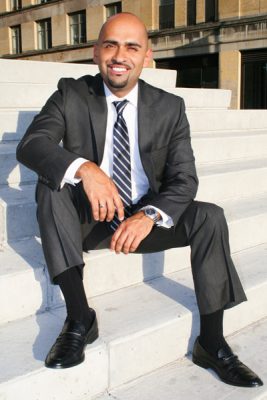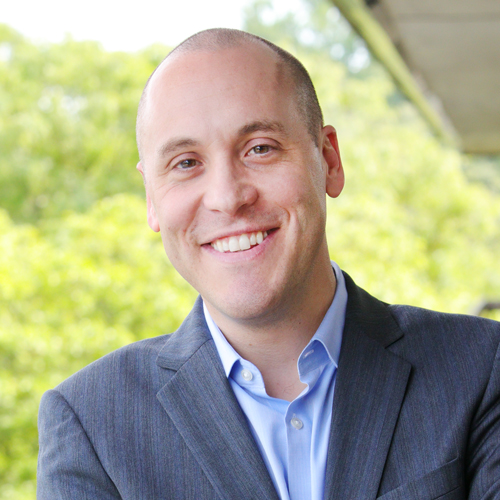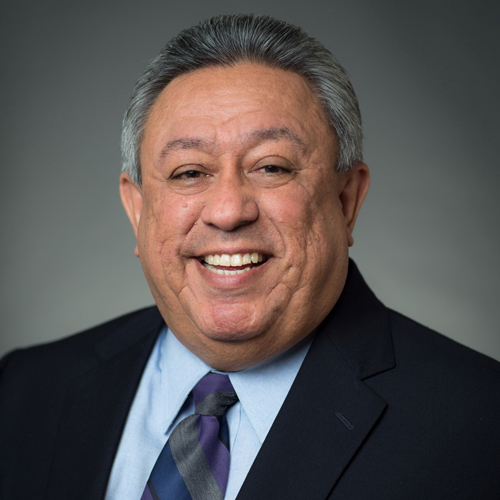
People usually consider a few different options for a career before honing in one path. Juan Mejia, however, always considered a career in healthcare to be his destiny. Mejia, who is currently vice president of operations at NewYork–Presbyterian Hospital, never wavered from wanting to take care of people, even as a small child.
His mother, who raised him as a single parent for most of his life, consistently instilled the importance of an education when he was growing up. The emphasis on education helped develop Mejia’s interest in healthcare almost from the get-go.
He attended University of California Los Angeles as an undergraduate with the intention of going to medical school. After a couple of years on that track, Mejia realized he found the policy and management aspect of healthcare more intriguing.
“I was more interested in looking at the big picture of healthcare and became more intrigued in healthcare delivery models, policy, and the business side of healthcare,” Mejia says. “That’s what got me to focus on my next level of experience and education, and what brought me to New York City.”
Mejia pursued his master’s degree in public health at Columbia University, and put his focus on healthcare policy and management.
“I found myself interested in work that was either community-based, related to hospital administration or work that on a macro level could impact the way we deliver care to patients in the United States,” Mejia says.
Mejia’s initial plan was to get his master’s degree in New York and return to Los Angeles, but thirteen years later, he still finds himself in the Big Apple. After he graduated from Columbia, Mejia started working at NewYork–Presbyterian Hospital (NYP) as a revenue manager. He has since held numerous positions at the hospital, including the one he holds currently as vice president of operations for the NewYork–Presbyterian’s Weill Cornell Medical Center.
He works closely with the hospital’s chief operating officer, and the rest of the NYP leadership team, on managing the daily operations of the hospital and leading strategic planning efforts. He also works with just about every department in the hospital—including nursing, quality, finance, and support services—to ensure that the hospital continues to deliver quality care and that patients’ needs are being met at the highest level.
Shift in Focus
In his thirteen years working at NewYork–Presbyterian, Mejia has seen his fair share of major changes in the healthcare industry. As the market continues to evolve, NYP has had to evolve right along with it to maintain the highest level quality of care. One obvious change is the size of the hospital, as the number of campuses and size of its regional network have continued to grow.
NewYork–Presbyterian’s expansion has been a big change for sure, but perhaps the biggest change Mejia’s witnessed during his tenure is a shift in focus on the patient experience. In the past ten years, there’s been a bigger focus on patient-centered care across the nation, says Mejia.
“Hospitals across the nation are increasingly focusing on the patient experience as we balance the delivery of quality care,” he says. “Something that has definitely evolved over time and is today a top priority for NewYork–Presbyterian is really looking at care from the perspective of our patients, and their families, to make sure we deliver the best for each individual patient.”
As the number of NYP facilities has grown, so have Mejia’s responsibilities. He’s led a number of capital construction projects such as opening an adult infusion center at the Columbia campus, a pediatric intensive care unit at the Morgan Stanley Children’s Hospital, and an antepartum unit to help support the growth of the hospital’s obstetrics program.
“Those are just examples of how our hospital continues to evolve,” Mejia says. “I have been fortunate to be part of a team that continues to expand the services that we deliver in New York City.”
“Something that has definitely evolved over time and is today a top priority for NewYork–Presbyterian is really looking at care from the perspective of our patients and their families, to make sure we deliver the best for each individual patient.”
For Mejia, the ability to lead such projects was a learning process. Somewhere during that process, he transitioned from being a strong manager to a strong leader. Mejia credits the metamorphosis to the leaders he surrounded himself with and was able to emulate. He also picked up a lot of his leadership characteristics from his late mother, who still inspires him to work hard to this day.
“She passed away at a very young age and when I think about that, I am reminded that tomorrow is never promised to any of us,” he says. “We have to keep our goals in mind and work hard for what we aspire to be tomorrow. My mother’s memory continues to fuel me to want to excel at my personal career, and I’m humbled to know that the care we deliver at the hospital has such a positive impact on the individuals that come through our doors.”
Setting an Example
Just as patient-centered care has become one of NewYork–Presbyterian’s top priorities, so has working hand-in-hand with the community. Mejia was recently named member of one of the local Manhattan community boards. “It’s truly fulfilling to work with our community partners,” Mejia says. “Not only in healthcare initiatives, but toward a lot of other initiatives to meet the needs of our community.”
Mejia is also a cochair of the hospital’s LGBTQ task force. He works with a cross section of leaders across the organization who discuss how the hospital will continue to deliver care that’s equitable and inclusive for all of its patients.
“It’s great to sit at the head of the table and have those discussions,” he says. “Leading a lot of the education, policy, and program changes is really inspiring.”
Mejia and the team prioritize community engagement in an effort to understand the needs of community to develop the staff as programs grow. The hospital continues to expand its reach as more and more patients are coming in from the tristate area and even from across the United States and around the world.
“It’s of top importance to understand the needs of our unique patient population so we can ensure that we are delivering the best patient-centered care in our community,” Mejia says. “As leaders, we have to make sure that we are not only driving the strategy and vision, but also setting the example of respectful behaviors with our staff and ultimately understand the impact that those behaviors will have on our patients, with each other as colleagues, and in the world around us.”
Challenges and Responses
Juan Mejia outlines NewYork–Presbyterian’s major challenges and how NYP responds to each
Challenge: Staying ahead of the increasing volume of patients in need of care.
Response: As we respond to expanding our hospitals to manage our growing population, we maintain our level of quality care as our top priority. Delivering care up to our highest standards is critical regardless of how busy we get.
Challenge: Engaging with the community to ensure NewYork–Presbyterian provides linguistically and culturally competent patient-centered care.
Response: We have a model at the hospital called ‘The Culture of One,’ which is seeing every patient as an individual regardless of a patient’s race, gender, culture, religion, language, or sexual identity. It’s important to understand every patient as an individual so we can understand the needs of our patients and deliver top notch patient centered care.
Challenge: Providing care that will keep NewYork–Presbyterian performing well financially.
Response: To support the growth of our organization, it’s of equal importance that we maintain a strong bottom line. To maintain our care standards, we must deliver the best technology, facilities, and staff to our patients. Keeping an eye on the bottom line allows us to be the best.
 Diagnosis with Dr. Hernandez Suarez
Diagnosis with Dr. Hernandez Suarez
“Learning about Juan Mejia’s success at Columbia Presbyterian Hospital strikes a personal chord with me.
I was born at Columbia Presbyterian Hospital, where in 1962, a few Latinos held healthcare leadership positions.
Columbia University’s footprint on the health of the New York metropolitan area is enormous in terms of direct patient care, research, and providing a teaching hospital. It is an integral part of New York’s health.
Mejia’s leadership at NewYork–Presbyterian is patient-centered, culturally sensitive, and equitable.
Hospital systems have become increasingly challenging to run, considering financial constraints and the rising complexity of care. However, by collaborating with community partners, creating new alliances with the public sector, and linking academic health centers with NGOs, these challenges can, and will, be met. Mejia’s leadership is proving just that.”
—Dr. Yogi Hernandez Suarez

